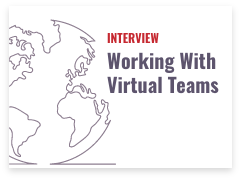Virtual executive support. Strategic assistant.
These two terms represent an efficient way to delegate without having to incur associated employee overhead costs or make a full-time commitment to a support resource.
For decades now, virtual executive support have operated as independent contractors, working remotely from anywhere in the world and providing a multitude of support services at varying price points.
Today, virtual executive support are sought out by entrepreneurs, startups, and leaders around the world as a quick, easy delegation resource. But the rise in popularity of virtual assistants has spawned a plethora of services that offer varying levels of skill, expertise and effectiveness.
As the field has grown, it has begun to separate into two tiers:
Traditional
virtual executive services
that provide professional support staff for common business tasks. Typically, it’s up to the business owner to develop the delegation strategy and manage the assistant(s).
Premium
virtual executive services
that provide, in addition to an administrative support staff, strategic guidance for implementing and executing effective delegation. A more sophisticated service, it is designed to incorporate a proactive, consultative approach to support. The service provider manages the team for the business owner.
However, even as the industry has begun to move toward tiered services, much of the public continues to view all virtual executive support as the same. Too often this confusion results in businesses investing in services that don’t meet their expectations and needs.
Below we explore the differences in the types of services; how to know which might be right for you; and how to choose one that meets your needs and truly frees you and your business to grow.





















